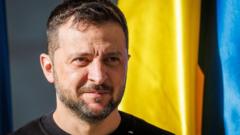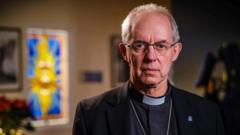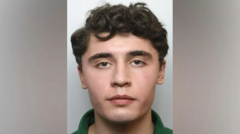
On the 1,000th day since Russia’s full-scale invasion of Ukraine, President Volodymyr Zelensky delivered a powerful speech to the European Parliament, urging Europe to intensify pressure on Russia. He warned that Russian President Vladimir Putin “would not stop on his own” and emphasized the critical need to push Russia towards a “just peace.”
Zelensky highlighted the escalating complexity of the conflict, pointing to the deployment of North Korean troops as a clear indication of Moscow’s determination to escalate the war. He criticized some European leaders for being more focused on elections than on supporting Ukraine, while Putin remains committed to winning the conflict.
The Ukrainian military commander echoed Zelensky’s sentiments, describing the past 1,000 days as an “extremely complex, fierce battle for our existence.” He emphasized the soldiers’ resilience, fighting in challenging conditions from the frozen trenches of Donetsk to the burning steppes of Kherson.
The article also discussed potential developments in military capabilities. There are unconfirmed reports that Ukraine may have used US-supplied Atacams long-range missile systems to strike an ammunition warehouse in Russia’s Bryansk region, approximately 100 kilometers from the border. The US had recently signaled permission for such use, though it is believed Ukraine might be restricted to using these missiles only for defensive purposes in the Kursk region.
Meanwhile, the conflict continues to exact a heavy toll. A recent drone attack in Ukraine’s northeastern Sumy region killed 12 people, including a child, following another strike that killed 11 people just days earlier.
In a significant diplomatic and military development, the Kremlin has approved an updated nuclear doctrine that broadens the potential scenarios for a nuclear response. Under these new guidelines, large-scale attacks using conventional missiles, drones, or aircraft could potentially trigger a nuclear reaction, as could threats to Russia’s sovereignty or attacks on its ally Belarus.
The European Union reaffirmed its support for Ukraine. EU foreign affairs chief Josep Borrell Fontelles stated that the EU will continue to support Ukraine but acknowledged the need to act more quickly and decisively. He emphasized that “history will judge us based on our actions and reactions.”
The UK also reiterated its support, with Prime Minister Keir Starmer confirming an “ironclad” commitment to Ukraine, with speculation mounting about potential permission to use British-supplied Storm Shadow missiles against Russian targets.
As the conflict enters its fourth year, the international community remains divided, with continued support for Ukraine balanced against concerns about escalation and potential broader geopolitical consequences.








